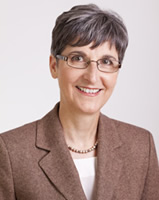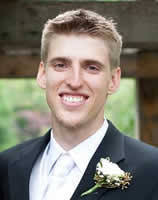 |
C O N F E R E N C E 2014 Thurs May 8 to Sat May 10, 2014 |
 |
Session 08
 |
 |
Caroline Burgess |
Dr. Ian Burgess |
Applying Physics Principles to Build a Career Roadmap |
In an increasingly competitive economy, choices that students face at the high school and undergraduate levels can have a great impact on their future job prospects. While this reinforces the importance of strategic career planning, many students are not armed with enough information to formulate these strategies effectively. For example, students are often told in high school and undergraduate physics courses that "taking physics allows you to do anything", but are usually not given clear examples of what specific careers "anything" actually refers to and, more importantly, how physics fits into the path that leads them there. This workshop describes an interactive homework exercise that provides a first-principles approach to career planning, reinforcing the analytical approach to problem solving developed in a physics class. Small groups of students will each look at a different type of career. They will determine what transferable skills and knowledge base one must have to be successful in that career. Students will then analyze where one could obtain these skills and knowledge, starting from high school, and moving on to post-secondary education and relevant work experience. In the end the students build one or more realistic trajectories to these careers. By sharing the insights from many teams in a class, students will gain an appreciation for how their current decisions, from choosing electives to choosing post-secondary programs, affect their career opportunities down the road |
Biography |
Caroline Burgess is passionate about helping young people achieve academic and
career success. Trained as an engineer and an educator (B.A.Sc. Mechanical Engineering
Coop, University of Waterloo and M.Ed., Mathematics Education, University of Texas at
Austin), she has worked in research, industry and government, and has taught math and science
at the secondary and post-secondary levels in Canada and the US. For the past nine years
she has been a career mentor to many high school students, university students and post
graduates in STEM disciplines - first in her role as Outreach Coordinator in the Faculty
of Science at McMaster University from 2004 to 2012 and now as an independent consltant
(www.carolineburgess.ca). She maintains an extensive network of contacts in STEM fields
as a resource for tracking employment trends and for dynamic feedback on the transition
from post secondary education to a career. |